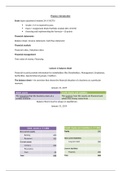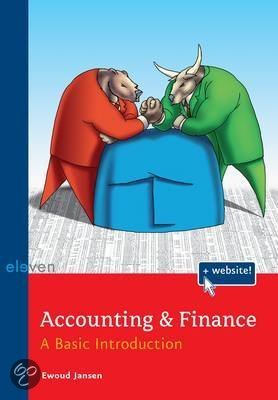Samenvatting
Summary Finance & Accounting; A Basic Introduction
Finance & Accounting; A basic Introduction, is completely summarized in this document, which includes theory, formulas, examples and additional information from PowerPoint slides.
[Meer zien]





